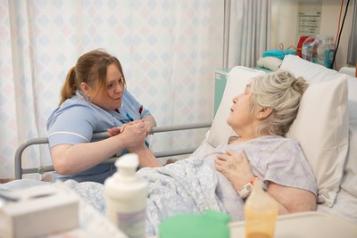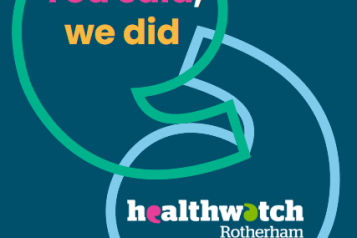The Rotherham NHS Foundation Trust statement regarding CQC findings:
The Rotherham NHS Foundation Trust statement in response to the verdict:
Dr Richard Jenkins, Chief Executive of The Rotherham NHS Foundation Trust, said: “On behalf of The Rotherham NHS Foundation Trust, I unreservedly apologise for the deficiencies in how the Trust safeguarded children from the risk of harm in 2019 and early 2020.
The court focussed on failures in our policies, training and oversight of safeguarding and we fully accept the findings of the court. It’s important to note that the court was clear that the failings were not the result of actions of clinical staff and that no child came to harm as a result of the failings.
Helen Dobson, Chief Nurse said: “Since 2019, the Trust has made extensive changes to our children’s safeguarding processes. Robust action has been taken to improve policies, training and oversight, with the introduction of a range of initiatives including safeguarding huddles, closer partnership working within our teams and with Rotherham partners.
In order to assure ourselves and others, we recently invited NHS England to independently review our children’s safeguarding arrangements and, while we await the written report, the verbal feedback from the reviewing team was positive.”
Care Quality Commission (CQC) statement:
The Rotherham NHS Foundation Trust has been ordered to pay a total of £233,238 after pleading guilty to one charge of failing to provide safe care and treatment to four young children.
The trust has pleaded guilty to failing to provide safe care and treatment exposing the children to a significant risk of avoidable harm, as well as exposing other patients to a significant risk of avoidable harm, following a sentencing hearing today (Wednesday 26 October) at Sheffield Magistrates’ Court.
Child 1 attended the urgent and emergency care centre (UECC) at Rotherham General Hospital on 1 October 2019 with unexplained facial bruising. A review was carried out at the children’s assessment unit (CAU) which resulted in no safeguarding concerns and so they were discharged. They returned a few days later with concerns about their feeding, and a few days after that with an eye infection. They were reviewed and discharged again with no concerns raised.
Then on 8 October 2019 child 1 attended UECC with a suspected fractured arm. A review was carried out and the child had suffered non-accidental injuries to both legs, an arm and ribs.
Child 2 attended UECC on 25 December 2019 where they reported as being unwell, having a mouth injury and having breathing difficulties. The child was reviewed, no safeguarding concerns were reported so discharged, despite the mouth injury being recorded as a potential non-accidental injury.
Child 2 returned to the CAU later the same day, they had some unexplained bruising on their left arm and shoulder and redness to their right eye. A body map identified nine different injuries.
Child 3 attended the UECC on 23 December 2019 suffering from significant breathing difficulties and bleeding from their nose and mouth. No safeguarding action was taken, and the child was treated for sepsis. The child was discharged on 26 December 2019, with no explanation for the bleeding.
On 29 January 2020 child 3 attended the CAU following a referral from the GP for breathing difficulties. Following an assessment, no safeguarding concerns were identified. They returned to the UECC a few days later following another GP referral. Due to concerns, it was agreed a child protection medical was required. This identified that child 3 had several non-accidental injuries.
Child 4 attended the UECC on 20 January 2019 with a mouth injury. Staff did not consider it was a non-accidental injury or that there were any safeguarding concerns and so they were discharged. They then attended hospital again on 14 February 2019 and multiple fractures were identified.
Evidence showed the trust did not have effective reporting systems and processes. Also, they did not have up to date policies to keep people safe or make sure staff were fully aware of them. Additionally, the trust failed in ensuring all staff had relevant training which impacted on the poor care these young children received.
The Rotherham NHS Foundation Trust did not take all reasonable steps to ensure that safe care and treatment was provided, resulting in four young children being exposed to a significant risk of avoidable harm, and the exposure of harm to other patients at Rotherham General Hospital.
The cases of all four children and other unnamed service users were considered together as part of a single charge for failing to provide safe care and treatment and the trust was fined £200,000 for this one single offence. The court also ordered the trust to pay £170 victim surcharge and £33,068 costs to the Care Quality Commission (CQC), which brought this prosecution.
There are a number of enforcement actions we can and will take before prosecution to encourage and support improvement. People are entitled to receive safe care and treatment when they put their trust in health and care services, and providers should be held to account when significant avoidable failures occur.
The size of the fine is a decision made by the court and is informed by sentencing guidelines. CQC does not have influence over this decision.
Sarah Dronsfield, CQC head of hospital inspection, said:
“These young children were let down by The Rotherham NHS Foundation Trust’s lack of good policies and processes around safeguarding, which sadly in this case has had very real-world consequences for them. Anyone using health and social care services should have the right to be seen by staff with the right training, who have the right processes in place, to keep them safe. This was not the case at Rotherham General Hospital.
“This lack of good systems or training meant vulnerable young children, all less than six weeks old, were let down by the trust, sometimes on several occasions, when they failed to identify safeguarding concerns which could have prevented them from coming to further harm.
“I hope everyone working in the health and care system can learn from this and do all they can to prevent this happening again.
“The vast majority of people receive good, safe care when they attend hospital, but if we find a provider has put people in its care at risk of harm, we take action to hold it to account and protect people.
“I hope this prosecution reminds care providers they must always take all reasonable steps to ensure people receive safe care and treatment.”


